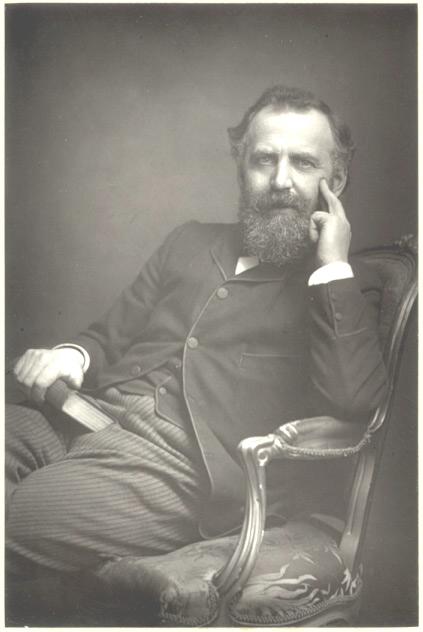The sinking of the Titanic is memorable for its countless stories, and the reason that so many of them have found their way down to us today was the many writers that were onboard the ship. The first draft of history about the Titanic was written by man prominent writers. We will focus on five in this episode.
Paul Danby
- He survived the Titanic by stepping off the ship in Southampton. But he was killed by the Nazis years later. His wife and mother were also murdered. Paul and Rose and his mother were sent to the Nazi extermination camp Sobibor, which was located in Poland, and they were killed there.
- Paul’s granddaughter – Petra Burka, 1965 World Figure Skating Champion
Adolphe Saalfeld
- He survived but no one really truly survived- haunted him the rest of his life. Could only get to sleep with the help of his chauffeur, “Patch” who drove him through the dark streets of London until he could finally fall asleep.
- Wrote letter home about the fabulous lunch he ate on his first day aboard the Titanic —soup, Fillet of Plaice (a flounder-like fish), Loin Chop with Cauliflower, and Fried Potatoes. He ate an Apple Manhattan for dessert and then some Roquefort cheese. “Washed down,” he told Gertrude, “with a Spaten beer, iced.”
Edith Rosenbaum Russell
She was a correspondent for Women’s Wear Daily, which had been in print for only two years before the Titanic sailed. Noted as saying, ““I’m accident prone. I’ve been in shipwrecks, car crashes, fires floods, and tornadoes. I’ve had every disaster but bubonic plague and a husband.
William Stead
Widely credited by historians as having establishing investigative journalism.
- Sat alone in the First Class Smoking Room reading when the Titanic hit the iceberg. Stayed there reading even as lifeboats were loaded on the boat deck.
- President Taft had invited Stead to the United States to participate in a peace congress in Carnegie Hall.
- February 9, 1922, Lincoln County News (Lincolnton, North Carolina) – Stead had told a friend that “an overpowering destiny had brought him on board and that the ship would strike [an object, with deadly impact] before morning.”
- In 1886, Stead’s story “How the Mail Steamer Went Down in mid-Atlantic, by a Survivor” was published. In the story, two steamships collide and there aren’t enough lifeboats. “This is exactly what might take place and will take place if liners are sent to sea short of boats,” he had written. Stead’s first published piece of fiction, “From the Old World to the New,” was a story about a clairvoyant on board a White Star Line ship who senses that another ship has hit an iceberg.
Jacques Futrelle
- He did not survive
- He was seen on the starboard bridge wing – at least one survivor said he was with John Jacob Astor IV, smoking a cigarette with the writer Jacques Futrelle, whose mysteries featured detective Professor Augustus S. F. X. Van Dusen, the “Thinking Machine.”
Lawrence Beesley
- Wore a Norfolk Jacket while in the Second Class Smoking Lounge when the Titanic hit the iceberg— overheard someone asking for iceberg ice for their cocktail
- In the lifeboat, noticed baby Alden Caldwell crying because his feet weren’t covered.
Culinary Spotlight: The pre-prohibition cocktail The Bronx (Old Waldorf-Astoria Bar Days Version)
1½ oz. Plymouth gin ¾ oz. Martini and Rossi sweet vermouth ¾ oz. Noilly Prat extra dry vermouth 2 orange peels (two 1-by-2-inch peels, snapped to release oils, then added to mixing glass) 1 dash Regans’ Orange Bitters No. 6
Add all ingredients to mixing glass. Add ice and stir for thirty seconds. Strain into chilled cocktail glass. Garnish with orange peel. —Frank Caiafa, The Waldorf Astoria Bar Book
About the Producers of the Series
 Veronica Hinke is an expert in Food History & Culinary Narrative. She is the author of the acclaimed historical novel “The Last Night on the Titanic: Unsinkable Drinking, Dining & Style).” Veronica is passionate about sharing her love of history, culinary arts and most of all…. people. “Every food story I’ve ever written, always, at the core of each one, ended up being about the people, and that doesn’t seem to change. My book, “The Last Night on The Titanic,” is no different. Those stories of hope and resilience…I think that’s why the Titanic story is still alive today.”
Veronica Hinke is an expert in Food History & Culinary Narrative. She is the author of the acclaimed historical novel “The Last Night on the Titanic: Unsinkable Drinking, Dining & Style).” Veronica is passionate about sharing her love of history, culinary arts and most of all…. people. “Every food story I’ve ever written, always, at the core of each one, ended up being about the people, and that doesn’t seem to change. My book, “The Last Night on The Titanic,” is no different. Those stories of hope and resilience…I think that’s why the Titanic story is still alive today.”
Veronica’s mouthwatering books, short stories and magazine articles explore food history and the delicious culinary narratives that take you back in time. My heart calling is writing, teaching and speaking about the art of storytelling.
Scott Michael Rank, Ph.D., is the editor of History on the Net and host of the History Unplugged podcast. A historian of the Ottoman Empire and modern Turkey, he is a publisher of popular history, a podcaster, and online course creator.
Cite This Article
"Last Night on the Titanic: The Writers" History on the Net© 2000-2024, Salem Media.
April 25, 2024 <https://www.historyonthenet.com/last-night-titanic-writers>
More Citation Information.






